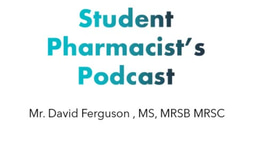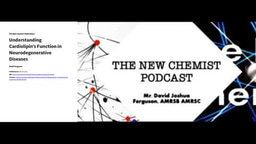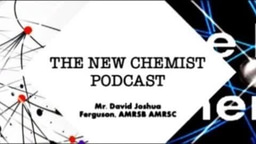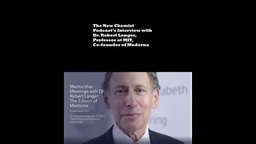An Interview with Dr. N. Mokarram, Emory University
Published in Bioengineering & Biotechnology
Join us for an insightful conversation with Dr. Nassir Mokarram, Associate Professor of Neurosurgery at Emory University, as we explore the cutting-edge world of bioengineering and neural regeneration. Listen now to discover how innovation is shaping the future of neurosurgery!
Some of the questions asked were from this listing:
Questions:
Enduring passions leading to a career in bioengineering and polymer science:
1. What inspired you to pursue a career in bioengineering and polymer science, and how did
your training at Georgia Tech shape your current research focus?
Balancing academic responsibilities and personal well-being: 2. How do you balance the
demanding responsibilities of being a research faculty member and now an Associate Professor
of Neurosurgery with other aspects of your life to ensure a holistic perspective on your career
and personal well-being?
Innovative approaches in bioengineering and polymer science: 3. What innovative approaches do you employ in your research on modulating immune response for tissue repair and cancer therapy, especially considering the evolving landscape of biomedical engineering?
Identifying the ideal professional environment in academia: 4. How did you identify
institutions like Georgia Tech, Duke University, and Emory University as ideal settings for your
academic and research career?
Impactful contributions and achievements in bioengineering: 5. Can you highlight some of
your most impactful achievements or contributions during your time as a researcher that have
advanced the fields of neural tissue engineering and immunoengineering?
Balancing responsibilities and achievements in research: 6. How do you manage your
responsibilities and maintain a well-rounded life amidst the demanding role of an Associate
Professor and researcher?
Strategies for success in bioengineering research: 7. What strategies or approaches do you
find crucial for success as a bioengineering researcher, particularly in a dynamic field like
biomedical engineering?
Cultivating vision and teamwork within the research environment: 8. How do you foster a
sense of vision and teamwork within your research teams, drawing from your diverse
experiences at various prestigious institutions?
Career strategies for excelling in bioengineering: 9. What career strategies or goals have you
set for yourself as you continue to excel in bioengineering research, considering your unique
background and aspirations?
Pivotal moments shaping career trajectory: 10. Can you share any pivotal moments or
decisions during your education or career that have significantly influenced your path as a
bioengineer and polymer scientist?
Staying updated with advancements in bioengineering: 11. How do you stay abreast of the
latest advancements and best practices in bioengineering and polymer science, ensuring that your research remains innovative and impactful?
Planning and adapting career path in the biomedical landscape: 12. In a rapidly evolving
biomedical landscape, how do you envision planning and adapting your career path to stay ahead of the curve and maximize your impact?
Role of mentorship in your bioengineering journey: 13. What role has mentorship played in
shaping your aspirations and guiding your journey from your graduate training to your current
role as an Associate Professor?
Advice for aspiring bioengineers and polymer scientists: 14. For aspiring bioengineers and
polymer scientists, especially those from diverse backgrounds like yourself, what advice would
you offer as they navigate their own paths to success in this field?
Personal motto or philosophy guiding your bioengineering career: 15. Can you share a
personal motto or philosophy that drives your pursuit of excellence and innovation in
bioengineering?
Envisioning the future of bioengineering practice and your contributions: 16. What do you
envision for the future of bioengineering practice, and how do you plan to contribute to its
evolution and advancement as you progress in your career?
Legacy or impact you hope to leave in bioengineering: 17. As you reflect on your journey
from your graduate training to your role as an Associate Professor at Emory University, what
legacy or impact do you hope to leave in the field of bioengineering?
-- Note: The views of this podcast represent those of my guest(s) and I. -- Note: Purpose of these episodes- not at all, for advice or medical suggestions. These are aimed to provide support for peer pharmacists in training in educational and intellectually stimulating ways. Again, these are not at all for medical advice, or for medical suggestions. Please see your local state and board-certified physician, PA or NP, and pharmacist for medical advice and suggestions.




